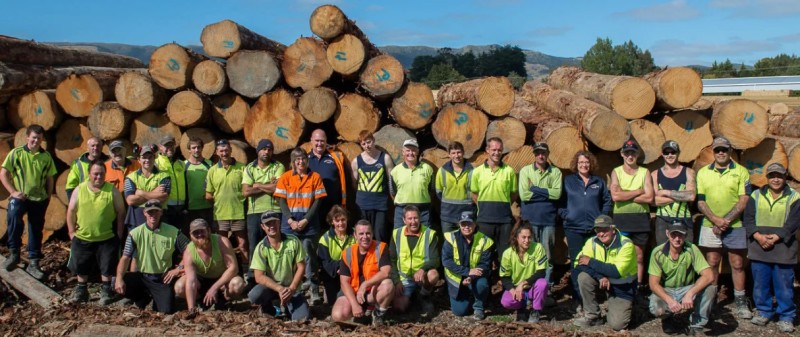After the central North Island, the southern region (Southland and Otago) has the second highest number of sawmills in the country. Many are smaller, family-owned mills that supply timber products as well as providing jobs in their local community.
Roger Stuart of Stuart Timber in Tapanui says that smaller sawmills are an important part of the timber processing industry.
“Larger mills can obviously produce much bigger volumes, but small mills have the advantage of being nimble - they can change tack easily to produce different products,” he says.
Stuart Timber makes all the different timber products you’d need for building a house - from house piles to weatherboards - as well as producing round posts and poles for their rural and horticulture customers.
Roger says that small mills can provide their customers with expert information about their products.
“Farmers like to buy local so we get to know the customers who buy direct from us, and we can make sure they get the advice they’re looking for,” he says.
Smaller sawmills can fill different niches in their region and produce complimentary product ranges.
In Southland for example, Ngahere Sawmilling Company in Mataura produces a range of timber products including packaging such as pallets and bins for both the domestic and export markets, as well as timber for the construction industry and farm building for the rural sector.
Findlater Sawmilling is a family-owned business in Tussock Creek, Winton processing Douglas Fir (New Zealand Oregon timber), cutting structural grades for housing as well as exposed beams and treated Radiata pine products.
Pankhurst Sawmilling in Riverton turns macrocarpa timber from local woodlots and farms into beautiful interior products such as exposed beams, panelling, furniture and bench tops.

